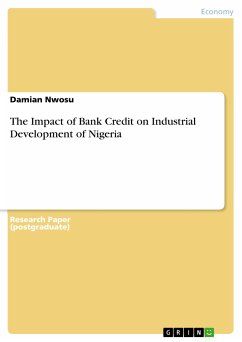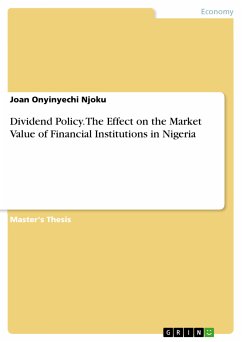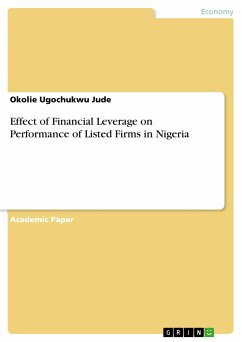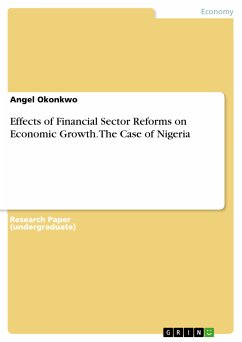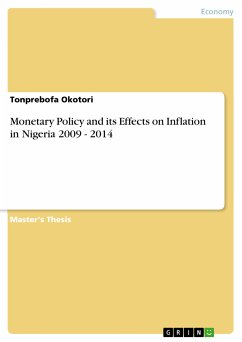Research Paper (postgraduate) from the year 2011 in the subject Business economics - Banking, Stock Exchanges, Insurance, Accounting, , language: English, abstract: The ongoing financial crisis has reinforced the importance of capital in the industrial development and economic growth of a country. In the last two years, industries have closed down owing to lack of capital occasioned by the global financial meltdown. From America, London, other European countries, Asia and Africa, governments have had to intervene in other to bail out some ailing industries and forestall total collapse of the economy. These show the importance of credit either from bank or any other means to industries. Recognizing the importance of capital in economic growth, Mackinnon and Shaw (1973), outlined the procedures for strengthening the financial sector of an economy so as to enable it play the all important role of providing capital for industrial development. Among the basic explanations for this is that the financial sector serves to reallocate funds from the supply side, given their investment opportunities, to the demand side with a shortage of funds. Thus, an economy with well-developed financial institutions will be better able to allocate resources to industries that yield the highest returns. The manufacturing sector is a catalyst to the modern economy and has a many dynamic benefits that are crucial for economic transformation, (Loto, 2005). The manufacturing sector is a leading sector. It helps to increase productivity in relation to import substitution, export expansion, creating foreign exchange earning capacity, raising employment and per capital income which according to Loto, (2005), widens the scope of consumption in dynamic patterns. Ogwuma, (1995) asserts that the manufacturing sector promotes the growth of investment at a faster rate than any other sector of the economy as well as wider and more efficient linkages among different sectors.
Dieser Download kann aus rechtlichen Gründen nur mit Rechnungsadresse in A, B, BG, CY, CZ, D, DK, EW, E, FIN, F, GR, HR, H, IRL, I, LT, L, LR, M, NL, PL, P, R, S, SLO, SK ausgeliefert werden.

